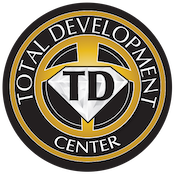4 Tips to Reading Your Financial Aid Award Letter

The very first step in receiving a financial award letter is to complete the Free Application for Federal Student Aid (FAFSA). Once that is complete, submit your applications to the colleges of your choice, and then expect your financial aid award letter to show up between January and April. As these statistics show, it’s worth the effort to complete your FAFSA. (Learn how to complete it here.)
- 85% of full-time, first year undergrad students in 2019-2020 received some sort of financial aid. Most of these were federal grants. (National Center for Education Statistics, October 2021)
- 51.8% received federal grants
- 35% received state and / or local grants
- 49.2% received institutional grants
- The average federal grant award in 2022 was $10,590.
- The highest awards went to students who attended private, non-profit four-year schools and whose households earned $30,001-$48,000 per year. (College Board, October 2022)
In this article, we’ll cover the basics of reading, analyzing, and making a decision on what’s included in your financial aid award letter.
1. Understanding the Basics of Your Financial Aid Award Letter
Financial aid award letters are documents sent to students who have applied for financial aid. These letters provide information about the types of aid available, including grants, scholarships, and loans. They also include details about the amount of money awarded and any conditions that must be met in order to receive the funds. There is no standard format for your award descriptions — read everything carefully.
2. Analyzing Your Financial Aid Award Letter
When you receive your financial aid award letter, read it carefully and understand all the information included. Pay close attention to the total amount of money offered, as well as any conditions or restrictions associated with receiving the funds. Additionally, look for any deadlines or requirements that you must meet in order to keep your financial aid package intact.
Make sure you understand the full ramifications of each offer. What college costs does the offering include in the figure? (Room and board, books, personal expenses, transportation, etc. are all components that may vary from award to award.) What do the acronyms stand for? Is the grant or loan consistent throughout all 4 years or does it only cover the first year?
As you analyze, know what each type of federal aid means:
- Scholarships: You do not repay these need and merit-based options
- Federal Grants: You rarely need to repay these
- State, Local & Institutional Grants: You rarely need to repay these
- Federal Work-Study: You’ll earn wages to be used at your discretion, but the government will cap them at your work-study award amount
- Federal Student Loans: You must repay these within a certain time period, often with interest
- Private Student Loans: You must repay these with interest
3. Comparing Financial Aid Packages
If you have received multiple financial aid award letters from different schools, it is important to compare them side-by-side in order to determine which one offers the best deal for you. Consider factors such as the total cost of attendance, the amount of money offered, and any special conditions associated with each package before you make your decision.
Because your options can be very confusing, it’s worth scheduling a personal consultation with your parent(s) and an expert from Crace College Consulting to understand this important decision without any regrets later.
4. Making an Informed Decision
Once you have reviewed all of your options and compared each financial aid package side-by-side, it is time to make an informed decision about which one is right for you. Consider not only the amount of money offered but also other factors such as location and program offerings when making your choice.
By following these 4 steps, you’ll be able to make a confident decision on the financial aid package that’s best for you. If you’d like additional support through your FAFSA application and financial aid packages, contact us at Crace College Consulting. We’d love to help!
